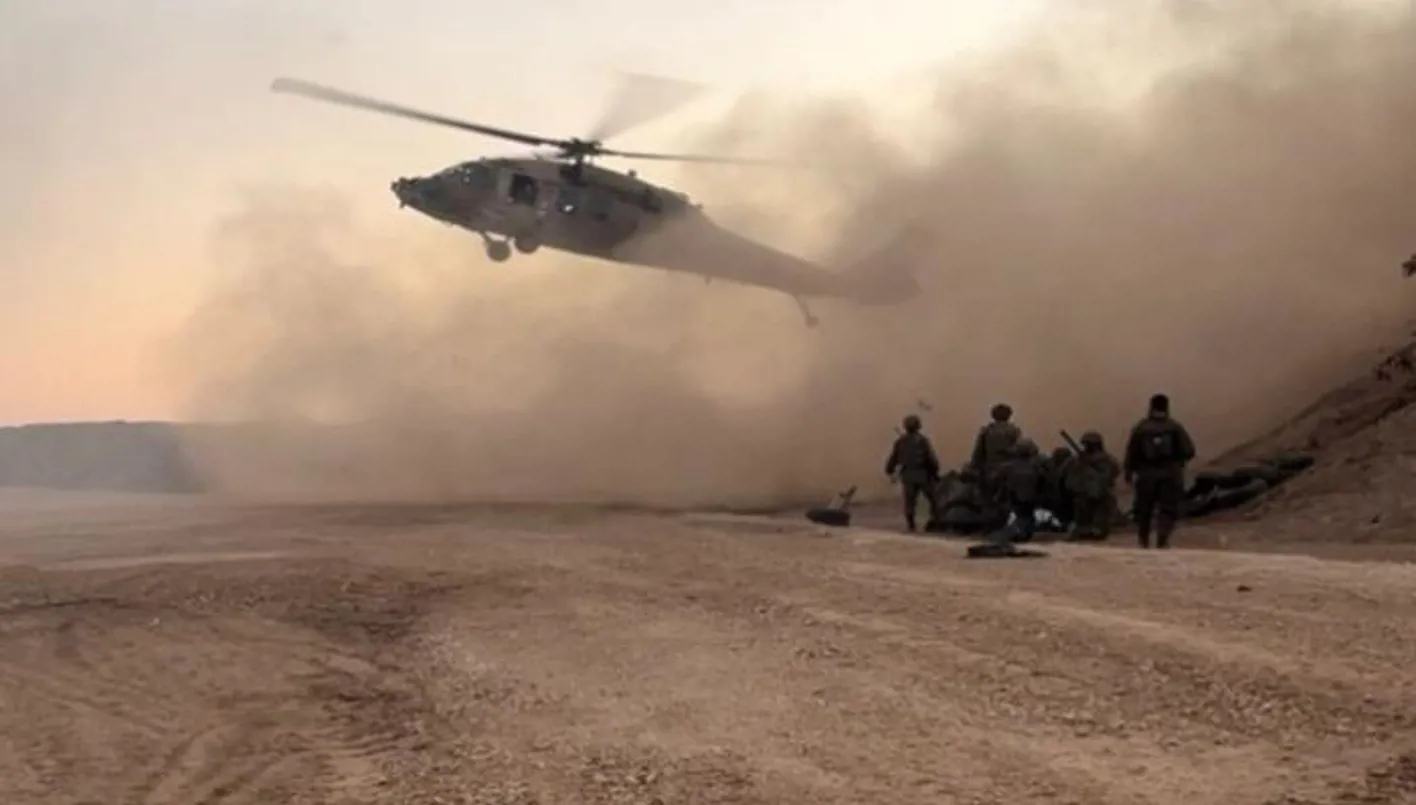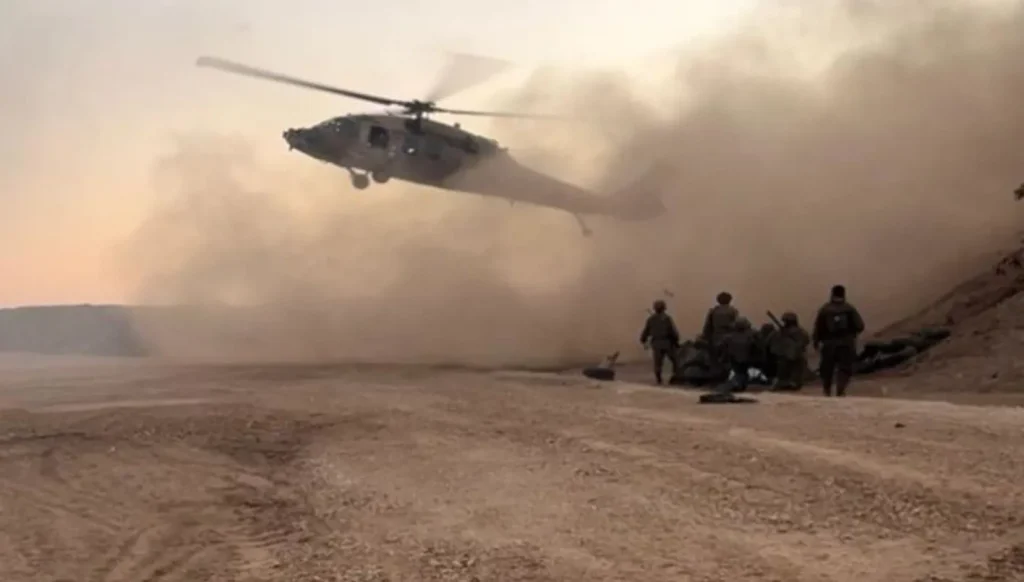The recent Israeli landing operation in the Manea Mountain area in the Damascus countryside was not just a fleeting military action but considered an escalation indicator that could push Turkey to try to improve its terms in the normalization negotiations between Damascus and Tel Aviv, making its approval a fundamental condition for any future settlement.
Hours after the Israeli landing, Turkey announced it was cutting trade with Israel and closing its airspace to Israeli aircraft.
Israel is concerned about the increasing Turkish influence in southern Syria and considers any permanent Turkish military presence near the Golan Heights a red line threatening its security. Ankara sees that no peace agreement will succeed or last without considering its interests, from security guarantees to the continued presence of its forces, and also seeks to play the role of guarantor for any peace agreement alongside the United States and Russia.
Turkey and Israel in Syria: Competition or Cooperation?
Professor of Law and International Relations Samir Salha believes that the Turkish-Israeli competition for influence in Syria is “unrealistic,” given the fundamentally different policies of the two countries. Turkey coordinates directly with many Arab capitals in its project to build a “new Syria,” a coordination that covers all aspects.
Commenting on the recent Israeli military landing near Damascus, Salha told “An-Nahar” that it “is far from being a limited security intelligence operation. Rather, it carries direct political and military messages to more than one party,” noting that some in Israel tried to link the operation to Ankara, “but that is completely illogical.”
Israel’s Demanding Conditions
Salha considers the Syrian-Israeli negotiations very complicated and that Israel’s conditions far exceed its border security. Israel wants to impose itself on the Syrian scene and force normalization on Damascus without making any concessions, and there is no guarantee it will leave the territories it occupies.
Regarding Turkey’s stance, he sees it as “clear” in dealing with the Syrian file, with Ankara “discussing these matters with Damascus and Washington more than with the Israeli side.” This is because Turkey is convinced that Israel is “not serious” about entering any real dialogue on the Syrian file, focusing instead on playing its cards against Damascus and Ankara, not only stirring the Druze card in the south but also trying to use the Kurdish and Alawite cards.
He believes that many answers lie in the actions of the United States and that the course of events awaits two regional and international events that will impact the Syrian file: the upcoming China global summit and the United Nations General Assembly sessions in New York.
Contradiction with Regional and Western Consensus
The regional scene is witnessing radical transformations, according to Israeli and Syrian affairs expert Khaled Khalil, who told “An-Nahar” that new settlement outlines are being reshaped after the fall of the Assad regime in Syria amid the decline of previous competition between Israel and Iran and the waning Russian role.
During Assad’s regime, Israeli strikes on Syria were limited to targeting Iranian sites within strict and defined “engagement rules,” often occurring at night to avoid human losses. But after the regime’s fall, Israeli military doctrine changed suddenly and rapidly, with Israel justifying its actions by fear of the rise of an Islamic regime on its borders, which contradicts the regional and Western consensus supporting the Syrian leadership headed by Ahmed Al-Shara.
This escalation, especially the recent attacks near Damascus, is considered by Khalil an indication that Israel “is swimming against the current, despite political negotiations in Paris and Baku.”
Today, Israel seeks to impose its dominance in the region through the Syrian arena but faces new competitors, not only Turkey but also the regional and international consensus rejecting the policies of Israeli Prime Minister Benjamin Netanyahu.
These policies, which Khalil describes as barbaric, attempt to export Israel’s internal crises to the region, as seen in the genocidal war in Gaza and recent strikes on Hezbollah and Iran.














Recommended for you
Exhibition City Completes About 80% of Preparations for the Damascus International Fair Launch
Talib Al-Rifai Chronicles Kuwaiti Art Heritage in "Doukhi.. Tasaseem Al-Saba"
Unified Admission Applications Start Tuesday with 640 Students to be Accepted in Medicine
Egypt Post: We Have Over 10 Million Customers in Savings Accounts and Offer Daily, Monthly, and Annual Returns
His Highness Sheikh Isa bin Salman bin Hamad Al Khalifa Receives the United States Ambassador to the Kingdom of Bahrain
Al-Jaghbeer: The Industrial Sector Leads Economic Growth